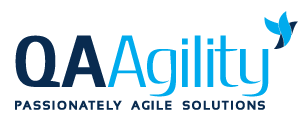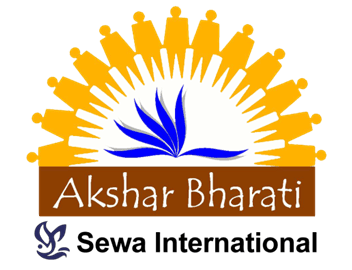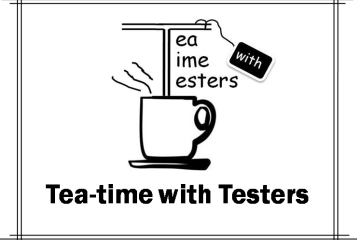Workshop
- Workshop 1
- Workshop 2
- Workshop 3
- Workshop 4
24-04-2016
Growing Trust in Teams
Team effectiveness is based on trust. Trust increases speed of communication, reduces conflict, allows more crazy ideas…
You want a much stronger bond with each other, that sees you through the hard times as well as the great times.
In this workshop you’ll experience and learn about tools to build a strong team fabric and grow your trust, so that you and your team are positioned for growth.
Trust is complex, which means it’s messy, contextual, and situational. We will create a Trust Canvas that gives you awareness of what trust means for you, in your context, and helps you stay conscious with what helps and hinders your trust in the future. This step enables you to keep taking deliberate action for the trust in your team.
Olaf will share what he has learned about trust and how to grow it in his years as a trust artist – you will get some tricks and tools to play with. And some neurobiology background to increase your understanding. Trust grows with sharing stories, with knowing who we are and what we want – so that we can better help each other get it. This day will allow you to reflect on how you show up, which expectations you have and think the others have. You will improve your clarity of identity and intent.
What you need is just an open mind, a curios mind to establish and take this trust with you
Who all should attend
All scrum masters, project managers, QA managers, Test managers, test leaders, head of testing, head of testing CoE’s, delivery heads, program heads, testers and all those who want to be good leaders, agile practitioners/collaborators and effective leaders. This would be a great workshop for all who aspire to work and lead a team and lead their own enterprise scale operations or organizations.

24-04-2016
Impact Mapping
Impact mapping Technique helps
1. Make better roadmap decisions
2. Strategic planning
3. Clearly communicate assumptions
4. Align team activities with business objectives
5. Build products and deliver projects that make an impact, not just ship software we will get our hands dirty by drawing our own Impact Maps. We will choose a case study together, then spend time exploring the Why, Who, How and What of the process using a Mind Map.
Once we have completed the process, we will have our first list of most important Features for our application! We will also walk away with an understanding of how to apply this technique in our own projects.” Impact mapping is a strategic planning technique that prevents organizations from getting lost while building products and delivering projects, by clearly communicating assumptions, helping teams align their activities with overall business objectives and make better roadmap decisions.
According to impactmapping.org: An impact map is a visualization of scope and underlying assumptions, created collaboratively by senior technical and business people. It is a mind-map grown during a discussion facilitated by answering the following four questions:
• Why are we doing this? The Goal.
• Who will be impacted by it? The Actors.
• How should our actors’ behaviour change? The Impacts.
• What can we do, as a delivery team, to support the required impacts? The Deliverables.
Who all should attend
All scrum masters, project managers, QA managers, Test managers, test leaders, head of testing, head of testing CoE’s, delivery heads, program heads, testers and all those who want to be good leaders, agile practitioners/collaborators and effective leaders.
This would be a great workshop for all who aspire to build products and deliver projects that make an impact, not just ship software

24-04-2016
Exploratory Testing: Hands-on Approach to Test Better
This workshop on Exploratory Testing is designed from the personal experience of attending and implementing learning from various courses and workshops like
• Exploratory Testing sessions
• Rapid Software Testing
• Black Box Software Testing courses
• Rapid Intensive Testing Live sessions
This course is open for any software tester and software testing teams who want to learn to articulate the thought process behind good testing. This course focuses on hands-on approach to learning testing and is not like any other course which dumps concepts into a tester’s mind. This course ensures that the participants engage in a fail-safe environment and practice in the session on how to solve the day-to-day problems. Combined with demo of the concepts, there will be enough exercises to exercise your brain and apply the learning from this workshop.
Who should attend this workshop?
• Anyone who is involved in software testing
• Software Testers
• Team Leads
• Software Developers interested in finding bugs in their code
Key Learning Opportunities:
• How to test when there are unclear requirements
• Find important bugs quicker
• Be the idea generator of your team
• How to deal with complexity, confusion and uncertainty
• Build a good relationship with the programming team
• Provide an on-demand test report
Course Outline: Introduction
• Understand the basis of good testing
• Know the different stakeholders and their impact on testing
• Why testers should get out of quality assurance business
• The right approach to software testing (if there is one universally accepted)
Key Idea: Test Idea Generation
• Use of Context Revealing Questionnaire
• Usage of Heuristics and Mnemonics
• Different sources of test ideas
• How can tools help us in test idea generation
Key Idea: Leverage the power of mind maps
• Introduction and benefits
• How to use them in different stages of testing
• How to use them to convey information better
Key Idea: Build your toolkit
• Scout for quick and cheap tools
• Make use of tools across the testing cycle
• Know the right tools
Key Idea: Bug Hunting and Bug Advocacy
• Find the right bugs
• Understand heuristics and Oracles
• Deal with intermittent bugs
• Learn good bug reporting with highlights from BBST courses
Key Idea: Test Reporting
• Common problems with test reporting
• Impromptu reporting based on different contexts
• Usage of dashboards
Key Idea: Sharpen your Testing Skills
• Questioning, Observation and Inference
• Practice your testing skills
• Thinking – Critical and Creative
• Bug hunting and investigation
Testing Exercises (distributed throughout the workshop)
• Test idea generation and more heuristics
• Generate mind maps for feature tour
• Bug hunting and bug reporting sessions
• Live demo of a testing session
• Test reporting
Session Recap and Q&A
• Recap of the key points
• Session on the key problem faced by the team
• Any other questions and answer

26, 27, 28 April 2016
Fast-track JVM development
Description: Get your developers and testers up to speed on using the JVM for application development or as testing platform. The focus is to accelerate learning on JVM technologies and to have the basic skills to be more efficient in development on the JVM, without taking the traditional slower approach of learning Java first. Attendees will spend a lot of time in practical sessions.
Content:
• Introduction to JVM terminology & basics
• Using Groovy as a first-order programming language on the JVM.
• Using Spock framework for unit-testing
• Using Geb for web-UI testing and building on top of Selenium
• Using Gradle to build and orchestrate deployments
Requirements:
• Be able to program in at least one programming language
• Bring your own laptop with a JDK7/JDK8, Git and source code editor (IntelliJ recommended) installed. (Operating system can be Linux, MacOSX or Microsoft WIndows).
Who should attend?
All folks in testing or development who want to keep on changing (Re-inventing themselves) with times. These most in-demand tools and technologies and are must have for all those who are looking for a change and are eager to learn the latest and greatest from one of the best in the world.












